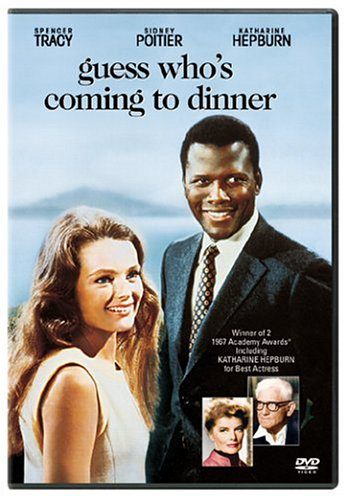
In Tobias Wolff’s 1985 short story, “Say Yes,” a husband and wife are washing and drying the dishes. He is clearly proud of himself for what a considerate husband he is to help with household chores. But whatever goodwill he has earned evaporates when, in casual conversation, he expresses his opposition to interracial marriage. When she challenges his regressive views, he immediately declaims on his long and positive association with blacks. When she presses him for reasons, he claims that “a person from their culture and a person from our culture could never really know each other.” She responds: “Like you know me?”

The story swings with her question. Both grow agitated in the midst of this tense conversation, and she accidentally cuts her thumb on the submerged silverware. As a drop of her blood falls to the kitchen floor, he sees an opportunity to overcome the poor impression his social views have made on her by tending her wound and sending her away to relax. But she refuses to abandon the heated topic of conversation:
“So,” she said, “you wouldn’t have married me if I’d been black.” He finds it to be a ridiculous question — they would have never crossed paths. “But if we had met, and I’d been black?” As much as he tries to avoid debating the hypothetical, she presses him. If she were black, she asks, “but still me, and we fall in love. Will you marry me?” He stalls, then finally says no. She leaves him in the kitchen and noisily turns the pages of her magazine in the living room. Still trying to rehab his image, he finishes the dishes and cleans the kitchen until it is spotless. Taking out the garbage, feeling regret over the argument and warmth for his wife, he determines to make things up with her. When he steps back inside the house, she is in the bathroom. He calls to her, apologizes, and promises to make it up to her. “How?” she asked. Caught off guard, he leans against the door and whispers, “I’ll marry you.”
“We’ll see,” she said. “Go on to bed. I’ll be out in a minute.” He undressed and got under the covers. Finally he heard the bathroom door open and close. “Turn off the light,” she said from the hallway. “What?” “Turn off the light.”
He does, and lies quietly in the dark bedroom.
His heart pounded the way it had on their first night together, the way it still did when he woke at a noise in the darkness and waited to hear it again — the sound of someone moving through the house, a stranger.
Like any good work of literature, this story speaks on so many levels—a devastating critique of racism, a commentary on how well couples can know what lies deep within the other. But for some reason, this story spoke to me most deeply as a parable on the journey of faith. [I guess, when you are a hammer, everything looks like a nail, and when you are a preacher, everything looks like a sermon illustration. But go with me here.]
As the story opens, this husband is impressed with his own righteousness — I thank my God that I’m not like those other husbands, the slackers who don’t help their wives in the kitchen. But in the midst of his careless words, his character is exposed, his relationship is threatened, and he experiences something akin to a crisis of faith. Does he really even know her? Will she still ‘say yes’ to him, now that she knows the truth about his views? Will he marry this ‘new’ wife? Will he ‘say yes’? If so, this is not just another night in a long domestic association. This is a new night — a wedding night.
What if the adventure of faith begins first with disruption — our flimsy righteousness exposed, our depth of wisdom shown to be shallow, our trust in appearances shattered. But then we discover a love that is mysterious and deep and makes our hearts pound. Suddenly, our world has altered. And we can try to revert to old patterns and ways, or, we can silently await the unseen one who approaches — “the conviction of things not seen” — as we say yes to the one who mysteriously, lovingly, has already said yes to us.

COMMENTS
4 responses to ““Say Yes” – Tobias Wolff’s Parable of Faith”
Leave a Reply













Wow. Stunning, Larry. And not at all what I was expecting. Thank you.
Excellent storyline and a great allegory. Thank you Larry
Wow that is so interesting! I am a Christian, but happen to be using this story in one of my high school classes I will be teaching coming up and was looking for different analysis. This is such a great analogy and something to meditate deeper on 🙂
Thanks Karen!